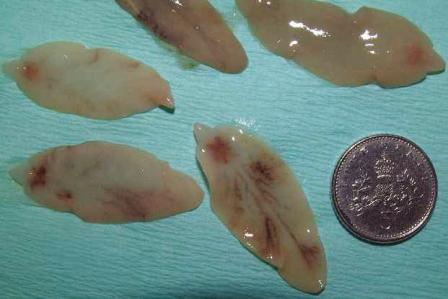Fluke In Fit Cows
19 November 2019Farmers across the country were exposed to a challenging autumn, where rainfall was high and ground conditions were difficult. 2019 year will be remembered for a challenging harvest but also for an abundance of grass. This abundance of grass has led to most cows across the country being in very good (if not too good) condition. With beef prices under extreme pressure and farmers looking for ways to save money, some may look at cow condition and decide not to dose their cows for liver fluke this year. This decision could cost a lot more money than it might save.
Liver fluke is a production limiting and often fatal parasite which if untreated can result in significant cost to a livestock business and have a negative impact on animal welfare. Every farm and every herd is different, making assumptions about liver fluke can be very dangerous. The early part of summer 2019 was dry and may have been enough to break the fluke cycle on your farm. However, the latter part of the grazing season was textbook liver fluke conditions, so be aware.
Control of liver fluke is much easier in cattle than it is in sheep, particularly those cattle that are housed over the winter. Anthelmintic resistance is less of an issue in cattle than in sheep and housing cattle also breaks the fluke cycle, meaning they, generally, only need to be dosed once over the winter period. When using a triclabendazole based flukicide (Fasinex), dosing can take place at or around housing, as it is effective against all stages of liver fluke. When using a nitroxynil based product (Trodax), then defer dosing until 6 weeks after housing as the product is only effective against adult fluke. All dosing should be done based on evidence, make use of Feacal Egg Counts (FEC) and/or abattoir feedback to develop a robust strategy for control.
Liver fluke is a complex issue, time spent discussing the issue with your vet will be time well spent. Don’t bury your head in the mud, a fit cows could well be harbouring a huge liver fluke burden, which could cause you and her a huge problem in the coming months.
Robert Ramsay, robert.ramsay@sac.co.uk
Sign up to the FAS newsletter
Receive updates on news, events and publications from Scotland’s Farm Advisory Service

